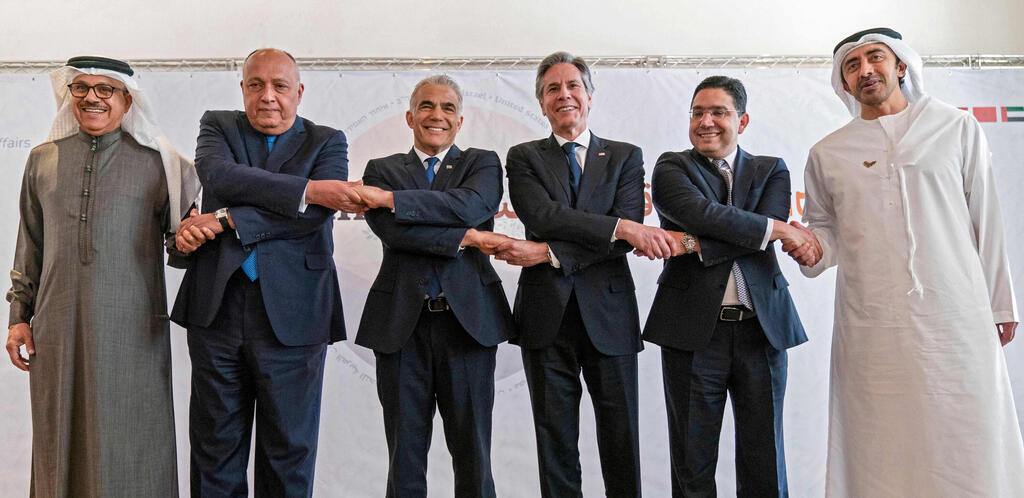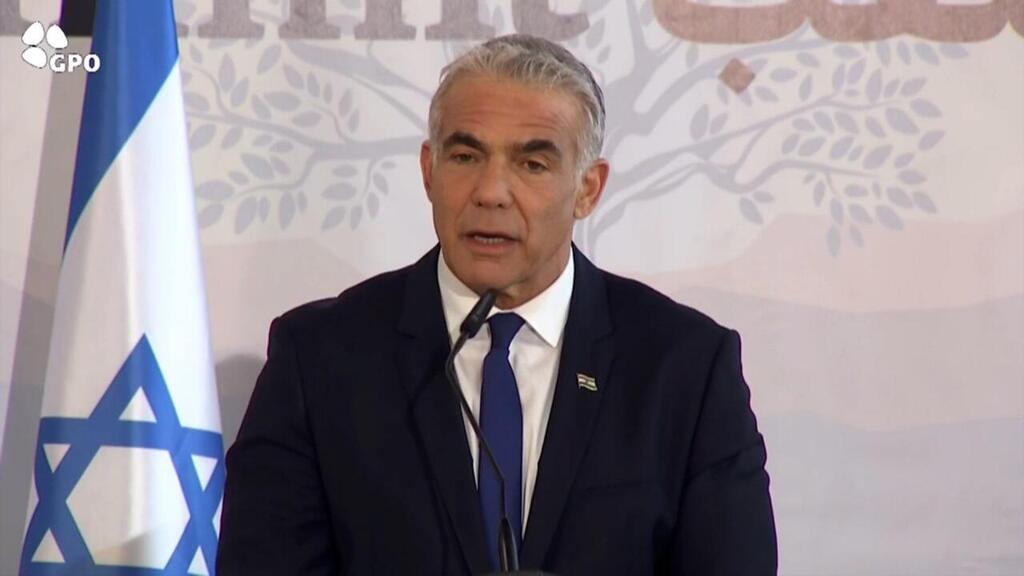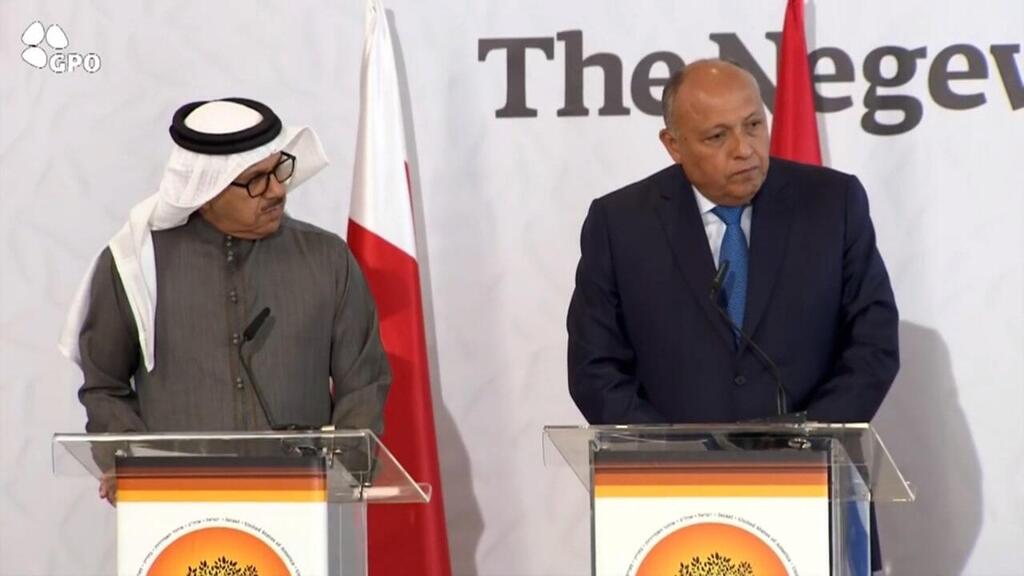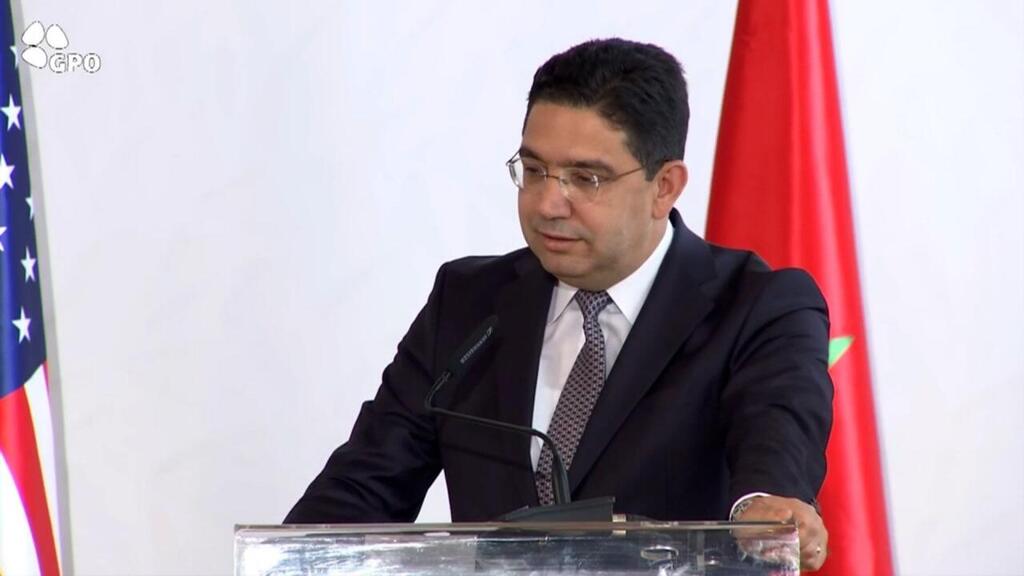Getting your Trinity Audio player ready...
The Negev Summit held with the participation of foreign ministers from Egypt, Bahrain, Morocco and the United Arab Emirates, as well as U.S. Secretary of State Antony Blinken ended on Monday as participants all condemned the deadly terror attack in Hadera.
The summit was convened as world powers were set to sign a new nuclear deal with Iran and the United States was considering removing Iran's Revolutionary Guard Corps from its list of terror organizations, a move Israel and its regional partners strongly oppose.
Foreign Minister Yair Lapid, who hosted the event, said the participants had decided in the wake of the terror attack to make their meeting an annual event.
"We are today opening a door before all the peoples of the region, including the Palestinians, and offering them to replace the path of terror and destruction with a shared future of progress and success."
"What we are doing here is making history, building a new regional architecture based on progress, technology, religious tolerance, security and intelligence cooperation," Lapid said.
"This new architecture - the shared capabilities we are building - intimidates and deters our common enemies, first and foremost Iran and its proxies."
Blinken, who spoke after Lapid, said Washington and its allies will work together to confront security challenges and threats including from Iran and its proxies.
Blinken also said Washington would continue to support the normalization process between Israel and Arab countries but added that this should not be a substitute for peace between Israelis and Palestinians.
5 View gallery
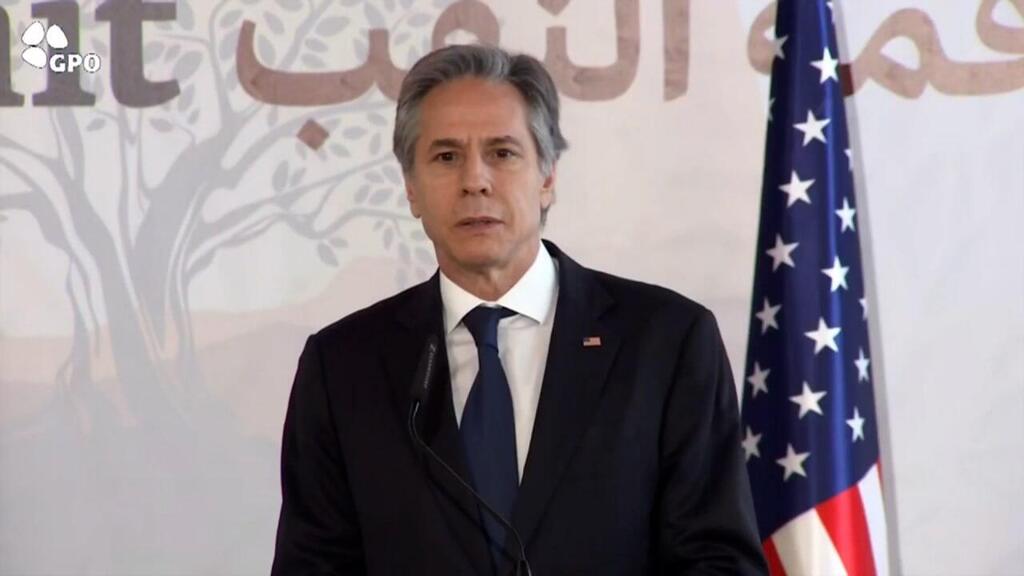

Antony Blinken speaking at the culmination of the Negev Summit on Monday
(Photo: GPO)
Bahrain's Foreign Minister Abdullatif bin Rashid al-Zayani said he was proud to participate in the Negev Summit and added that attacks by Hezbollah and the Islamic State must end and that goal can only be achieved by working together.
He said his country would continue to search for ways to bring Israel and the Palestinians to negotiate peace.
UAE Foreign Minister Sheikh Abdullah bin Zayed said the region lost 43 years since the signing of the peace agreement between Israel and Egypt but now was happy to be in Israel and learn about the country and the Israelis.
"It is clear to me that there is at least potential in the summit," he said. "We are trying to follow in Egypt's footsteps to build for a better and prosperous future," he said.
Moroccan Foreign Minister Nasser Bourita said that his presence along with others participating in the Negev Summit was an appropriate response to the terror attack carried out in Hadera.
Bourita said the relations between Morocco and Israel are not the result of opportunism but a natural occurrence in light of the ties between his king and country and Israelis of Moroccan origin.
"We are here today because we sincerely believe in peace," he said.
Egyptian Foreign Minister Sameh Shoukry spoke of the importance of the Israeli-Palestinian peace process so two states could live side by side in peace.
"We need to confront extremism and terrorism for the security and stability of the region," he said.


